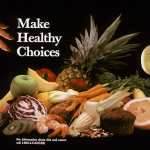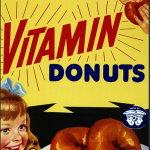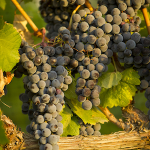Eat to beat it – disease, that is.
I can’t walk and chew gum – multi-tasking
Win-win, low price and high quality
The best of our technology disappears
food
“Anthropomorphism—the tendency to attribute human characteristics to nonhuman objects (Epley et al., 2007)—is a universal phenomenon” It is often used in marketing to strengthen our ties with some products, from Microsoft’s ill-fated Clippy to the widely successful California Raisins. A new study suggests that when we anthropomorphize foods, we may buy more but eat less. Why would that be?
With Thanksgiving dinner safely in the rearview mirror, we still have several more holiday feasts ahead of us. In the age of COVID-19, we also have disruptions in the supply chain – including shelves that have toilet paper, but not some holiday food items. And the rising price of turkey presages rises in the price of beef, fruits, and vegetables.
One of the chemicals that's commonly added to foods is the preservative sodium benzoate. Just how much food would you have to eat before that chemical killed you? It's tough to say exactly, but it's safe to conclude that the only real threat is if you get hit by a truck hauling sodium benzoate.
It's unclear whether Big Agriculture, or small local farms, can save humanity from itself. Yet both groups sit on the sidelines yelling at each other without clear long-term strategies, suggesting that humanity is doomed unless the deniers are right.
Nudges are a no-cost way of influencing peoples' decisions, and policymakers love 'em. Some nudges work better than others. Is it an appeal to our intellect, our feelings, or where a product sits on the supermarket shelf that most effectively alters our food choices? Let's find out.
A reader's comment led me to a very human picture of a scientist conflicted with the research he had done on GMOs. I ran across a whole different approach to debunking, specifically Netflix's "What the Health." And finally, an article describing how our foods have changed so dramatically. Not from "industrialization" but the gentle nudges of farmers for millennia who've domesticated our crops.
Who better to tell us what drives our choice in foods than marketers? We pay more attention to those front-of-the-package claims than to the nutritional information hidden on the back. What a surprise.
A couple of years ago Panera Bread went crazy. Those high up in the corporation decided that selling really great tasting food was no longer a sufficient strategy. No, they reasoned, if Panera Bread wanted continued success it needed to go on a full-frontal assault against science.
The byproducts of dry-cured ham may be a source of anti-hypertensive bioactive peptides, which could help improve cardiovascular health.
It's a new era for winemaking. Long the domain of craftsmen and connoisseurs, scientists worldwide are utilizing new technologies and combining forces to create better vino. In fact, Washington State University has an entire program dedicated to the science of wine.
Dr. Edward Archer believes that nutrition science is not just misguided but actually harmful. That's an extraordinary statement that requires extraordinary evidence. Does he provide it in his latest paper?











